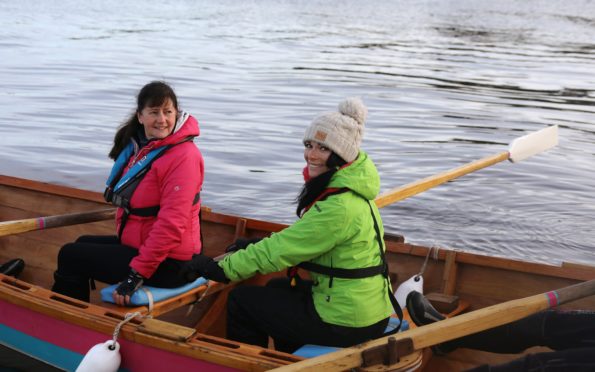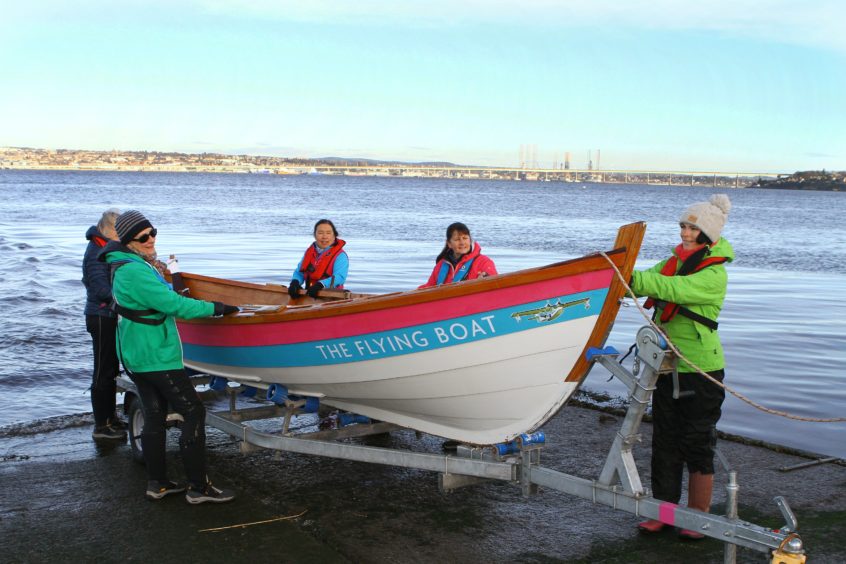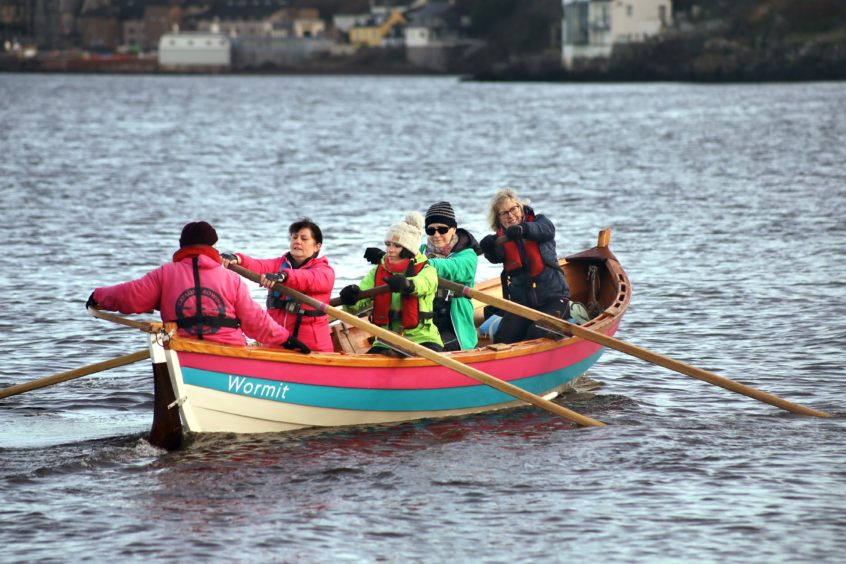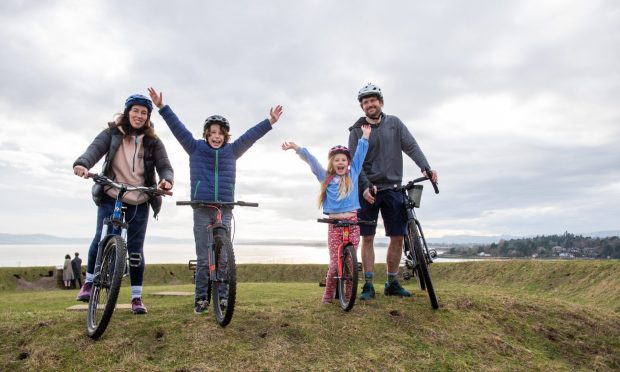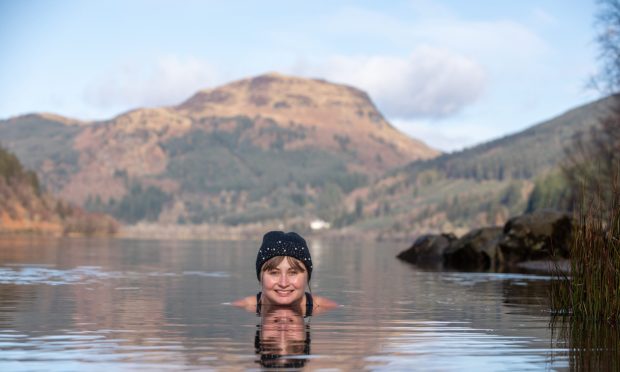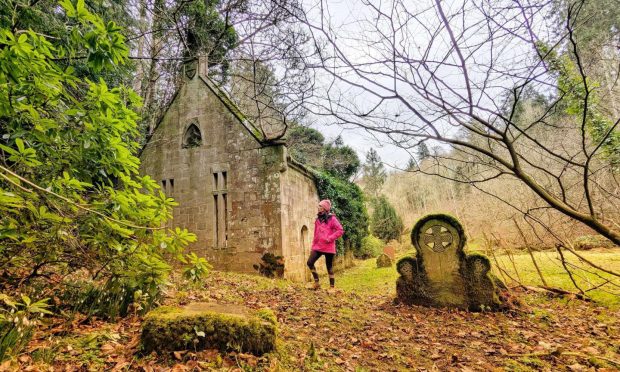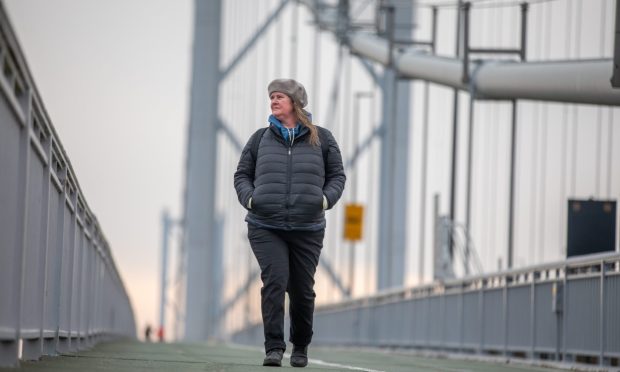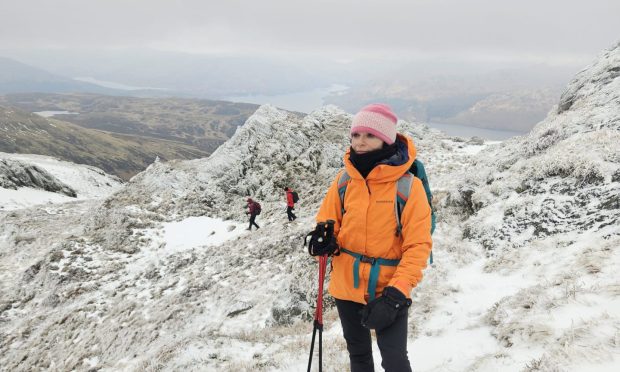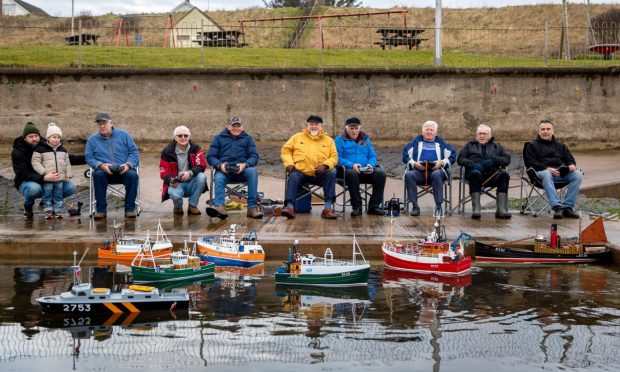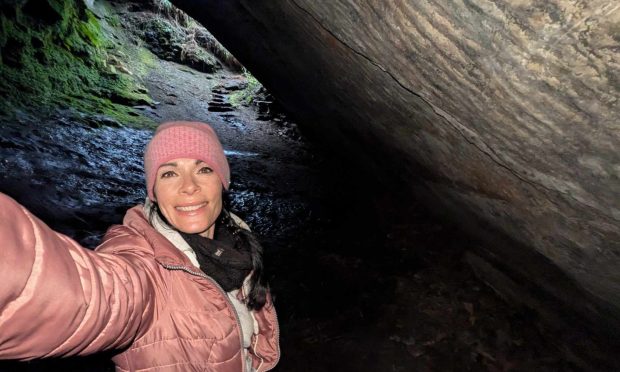Fed up sitting around watching festive telly? Feeling bloated? Gayle blows off the Christmas cobwebs and has a crack at coastal rowing
Eleven o’clock on a brisk December morning and I’m cutting through the Tay in a wooden skiff.
I’ve joined members of Wormit Boating Club for a session of coastal rowing and everyone on board – me included – is rowing perfectly in sync. It’s hugely invigorating and wonderfully meditative – a great tonic for the soul.
The club trains through winter unless the weather is particularly grim and today we’re lucky to have calm, sunny conditions, although it’s a nippy 2C.
It just so happens everyone taking part today is female and over 40, but the club also boasts male and younger members.
The sport has become increasingly popular since the Scottish Coastal Rowing Association began encouraging communities to hand-build their own skiffs, which come in DIY flatpacks and are made of plywood and larch, and row and race them.
For some, competing in regattas is the ultimate aim, but many enjoy the sheer pleasure of being at sea – plus there’s a fantastic social scene.
Despite the cold, everyone here today is cheery as plans are discussed for the morning session.
First, they’ll give me a “shot” on board, and then they’ll make a rather more challenging expedition to Balmerino.
It’s all hands on deck as members take the covers off their pride and joy, a gorgeous pink, blue and white skiff named “The Flying Boat”.
I help wheel her down to the jetty, wade into the chilly waters and hop aboard.
Once I’m sat in “third” position, cox Greta Gall bellows instruction, with various terms including “ready”, “blades down”, “easy” and “row”.
It’s Greta’s responsibility to steer the boat and she’s a bit of a legend as her dad was a lighthouse keeper on the Tay for more than 40 years.
I’m sat behind Evelyn Hardie, who’s in “stroke” position, which means she sets the pace and we follow her stroke.
“It’s important everyone puts their oars in together on a stroke,” Elizabeth Downes, who’s in “bow” position, says.
“If you put it in before, you slow the boat down.”
The “glide” phase is also important in that it allows speed to be gained, as well as enabling recovery.
But, says Elizabeth, many beginners miss the glide because they (wrongly) think they have to paddle very fast.
It sounds a lot to think about but actually, it’s very simple. Overthink it and you’ll probably cock it up!
After a few duff splashes, I get into the flow of things, and we all sweep along smoothly and in sync.
“You’re a natural!” says Elizabeth, which is nice of her.
Unfortunately, the compliment distracts me, and I “catch a crab”.
No, I don’t actually hook a crustacean: to “catch a crab” means I put my oar into the water at the wrong time.
Hence, it drags, impeding the boat’s motion, and then flies up and pushes me backwards! With help from Evelyn and Ruth Morrison, I manage to right myself rapidly but it’s a wee bit scary!
“Everybody has to catch a crab!” beams Ruth. “Sometimes people panic but it’s one of these things you must do before you can call yourself a rower!”
The benefits of rowing, both physical and mental, are huge and indeed, I feel my arms, legs and core working hard.
“You learn skills over time and we’ve all got stronger and fitter,” says Elizabeth.
“Rowing build different muscle groups and circuit training in winter helps.
“When you get into a rhythm, you forget about everything. And there’s the beauty of the Tay and the glorious views that open up around you, including of Dundee and the V&A which we’ve watched being built from the water.
“You meet people from different backgrounds and exercise outdoors together. It’s great, socially.”
As I prepare to head off, the ladies ask if I’ll be back for more. Absolutely, yes, because coastal rowing is fantastic on many levels, even if crabs are involved.
info
Wormit Boating Club, www.wormitboatingclub.org.uk, has around 60 members involved in coastal rowing. The club runs taster sessions on Saturday mornings where new members can learn with an experienced cox and crew. If it’s too windy, it runs boat handling skills sessions. Members compete in regattas including the “Frostbite Regatta” at Kinghorn Loch in January. Coastal rowing clubs have been popping up all over the world since 2010. scottishcoastalrowing.org
